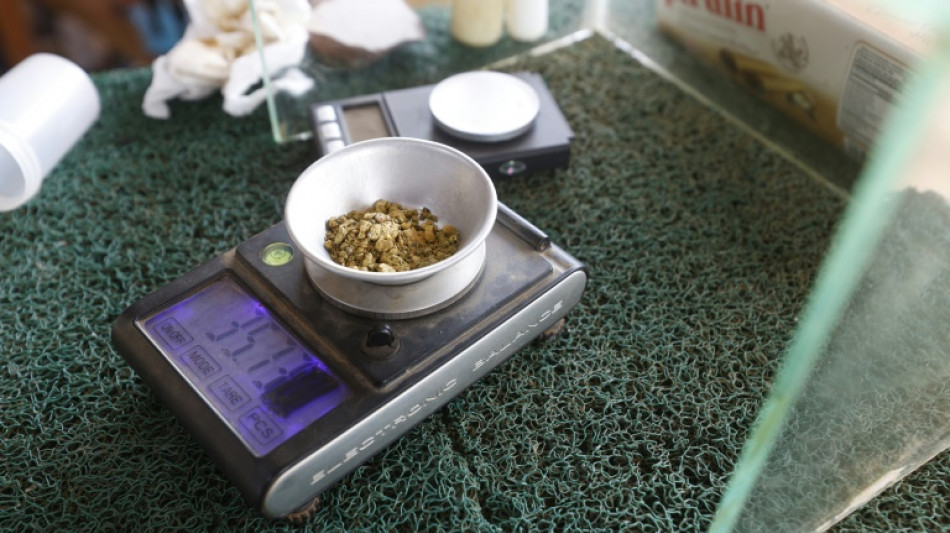
-
 'Ketamine Queen' dealer to plead guilty over Matthew Perry death
'Ketamine Queen' dealer to plead guilty over Matthew Perry death
-
Leeds beat Everton for perfect start to Premier League return

-
 'Ketamine Queen' to plead guilty over drugs that killed Matthew Perry
'Ketamine Queen' to plead guilty over drugs that killed Matthew Perry
-
Guirassy sends struggling Dortmund past Essen in German Cup

-
 Stocks under pressure as Zelensky-Trump talks underway
Stocks under pressure as Zelensky-Trump talks underway
-
Alcaraz wins Cincinnati Open as Sinner retires

-
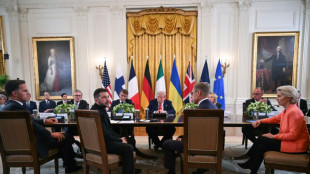 Trump floats Ukraine security pledges in talks with Zelensky and Europeans
Trump floats Ukraine security pledges in talks with Zelensky and Europeans
-
Doak joins Bournemouth as Liverpool exodus grows

-
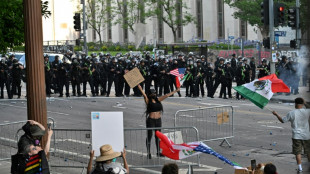 Excessive force used against LA protesters: rights group
Excessive force used against LA protesters: rights group
-
Panama hopes to secure return of US banana giant Chiquita
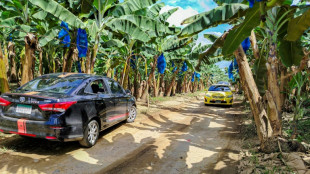
-
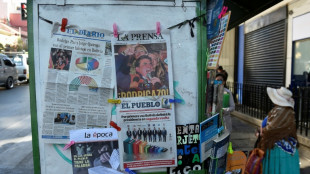 'Things will improve': Bolivians look forward to right's return
'Things will improve': Bolivians look forward to right's return
-
Trump welcomes Zelensky with fresh optimism on peace deal
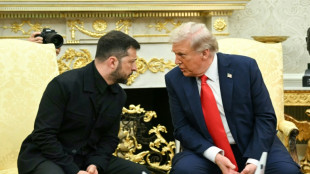
-
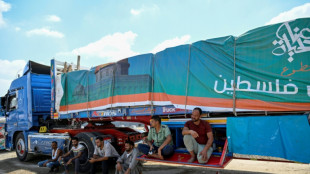 Israeli controls choke Gaza relief at Egypt border, say aid workers
Israeli controls choke Gaza relief at Egypt border, say aid workers
-
Air Canada flight attendants vow to defy latest back-to-work order
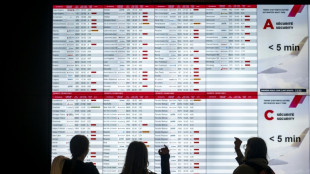
-
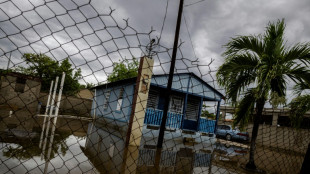 Hurricane Erin drenches Caribbean islands, threatens US coast
Hurricane Erin drenches Caribbean islands, threatens US coast
-
Europeans arrive for high-stakes Trump and Zelensky talks

-
 Trump, Zelensky and Europeans meet in bid to resolve split over Russia
Trump, Zelensky and Europeans meet in bid to resolve split over Russia
-
Hamas accepts new Gaza truce plan: Hamas official
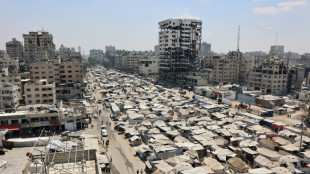
-
 Stocks under pressure ahead of Zelensky-Trump talks
Stocks under pressure ahead of Zelensky-Trump talks
-
Russian attacks kill 14 in Ukraine ahead of Trump-Zelensky talks
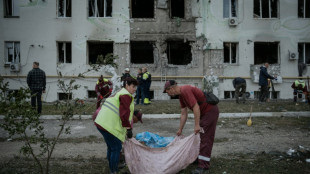
-
 Lassana Diarra seeks 65 mn euros from FIFA and Belgian FA in transfer case
Lassana Diarra seeks 65 mn euros from FIFA and Belgian FA in transfer case
-
Air Canada flight attendants face new pressure to end strike
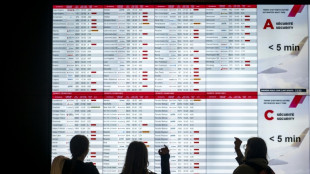
-
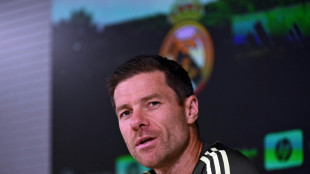 Alonso says 'no excuses' as Real Madrid prepare for La Liga opener
Alonso says 'no excuses' as Real Madrid prepare for La Liga opener
-
Deadly wildfires rage across Spain as record area of land burnt
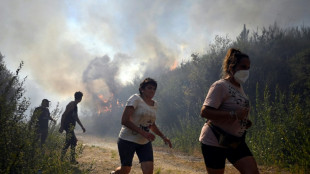
-
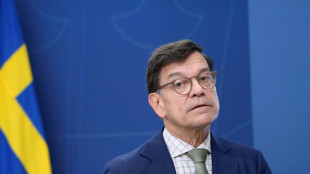 Swedish ex-govt adviser goes on trial over mislaid documents
Swedish ex-govt adviser goes on trial over mislaid documents
-
Injured Springboks captain Kolisi out for four weeks

-
 Irish literary star Sally Rooney pledges UK TV fees to banned pro-Palestine group
Irish literary star Sally Rooney pledges UK TV fees to banned pro-Palestine group
-
Stocks mixed ahead of Trump-Zelensky talks

-
 Son of Norway princess charged with four rapes
Son of Norway princess charged with four rapes
-
Fresh Pakistan monsoon rains kill 20, halt rescue efforts
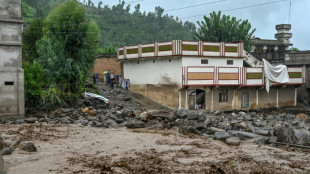
-
 Forest sign French forward Kalimuendo
Forest sign French forward Kalimuendo
-
Zelensky warns against 'rewarding' Russia after Trump urges concessions

-
 FIFA boss condemns racial abuse in German Cup games
FIFA boss condemns racial abuse in German Cup games
-
Stocks diverge ahead of Trump-Zelensky talks
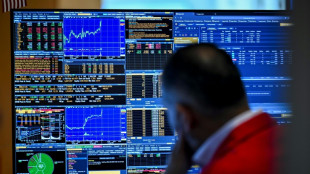
-
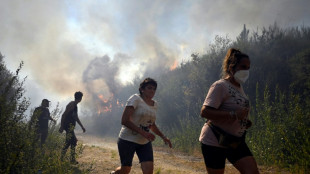 Spain and Portugal battle wildfires as death toll mounts
Spain and Portugal battle wildfires as death toll mounts
-
Joao Felix says late Jota 'will forever be part of football history'

-
 Javelin star Kitaguchi finds new home in small Czech town
Javelin star Kitaguchi finds new home in small Czech town
-
Rain halts rescue operation after Pakistan floods kill hundreds
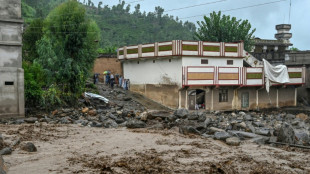
-
 Zelensky says Russia must end war, after Trump pressures Ukraine
Zelensky says Russia must end war, after Trump pressures Ukraine
-
China slams Germany for 'hyping' regional tensions in Asia
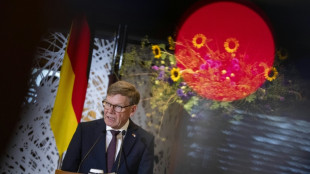
-
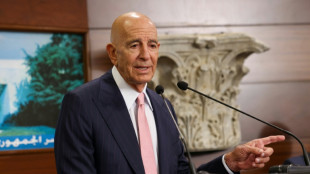 US envoy says Israel's turn to 'comply' as Lebanon moves to disarm Hezbollah
US envoy says Israel's turn to 'comply' as Lebanon moves to disarm Hezbollah
-
Asia stocks up before Trump-Zelensky talks
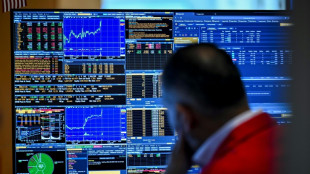
-
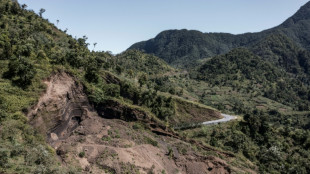 Fight to save last forests of the Comoros unites farmers, NGOs
Fight to save last forests of the Comoros unites farmers, NGOs
-
Hong Kong court hears closing arguments in tycoon Jimmy Lai's trial
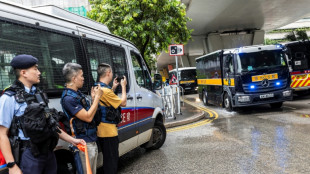
-
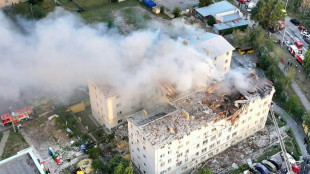 Five killed in Russian drone attack on Ukraine apartment block
Five killed in Russian drone attack on Ukraine apartment block
-
Myanmar junta sets December 28 poll date despite raging civil war
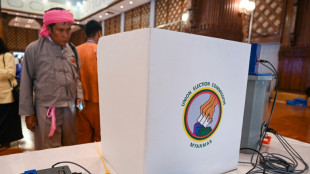
-
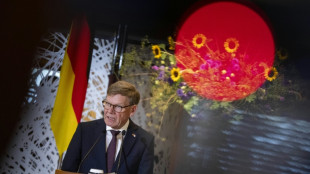 German minister says China 'increasingly aggressive'
German minister says China 'increasingly aggressive'
-
Singapore key exports slip in July as US shipments tumble 42.7 pct
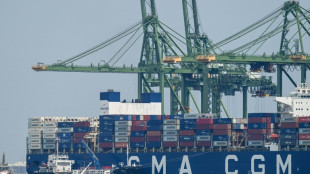
-
 German great Mueller has goal ruled out on MLS debut for Vancouver
German great Mueller has goal ruled out on MLS debut for Vancouver
-
Zelensky, European leaders head to US for talks on peace deal terms


Venezuela's El Dorado, where gold is currency of the poor
In the Venezuelan mining community of El Dorado, the majority of residents carry around gold instead of cards or cash to pay for groceries.
They live in a town named after the mythical City of Gold and untold riches -- but most of them are poor.
Merchants use scales to carefully weigh the flecks people guard in plastic pill bottles or wrapped in pieces of paper, and market goods are priced in weight of gold.
For 0.02 grams, you can get a small packet of maize meal, for one gram a pre-packaged bag of groceries that includes flour, pasta, oil, margarine, ketchup and milk powder.
A gram of gold can purchase between $85 and $100 worth of goods, but takes hours of back-breaking work to amass. If you're in luck.
"Gold is a blessing given to us so we can buy what we want, but you have to work hard," 48-year-old Jose Tobias Tranquini told AFP in the town of 5,000 residents mostly employed in mining -- legal and illegal.
"One day at the mine you might find nothing; there are lucky people who have gotten up to a kilo (2.2 pounds), but... I haven't had that kind of blessing. I've only gotten a little bit," said Tranquini.
El Dorado's residents have limited access to banking services.
They could sell their gold at one of the dozens of dealers that dot the streets, but most prefer not to. Gold -- unlike the battered Venezuelan currency that has lost 50 percent of its value this year -- does not depreciate.
- No gold, no life -
El Dorado arose as a military fort as Britain and Venezuela squared off in 1895 over the mineral- and oil-rich region of Essequibo now at the center of an increasingly heated territorial dispute with Guyana, which has administered it for decades.
The oldest inhabitants of the town remember that when it rained, particles of gold emerged from the town's clay streets.
Nowadays, the streets are tarred, though potholed, and the population rely for transport mainly on motorcycles that zoom noisily to and fro.
Hilda Carrero, a 73-year-old merchant, arrived in Eldorado 50 years go in the midst of a gold rush. The town, she recalls, was just "jungle and snakes... It was ugly."
Carrero sells cans of water for 0.03 grams of gold apiece -- about $1.50 -- but business, like mining hauls, is erratic. Some days she sells nothing.
"If I don't have gold I have no life," Carrero sighed.
It can be hard to make a living in a place where abundant reserves of gold, diamonds, iron, bauxite, quartz and coltan have attracted organized crime and guerrilla groups that mine illegally, and sow violence.
Extortion of small business owners is rife, and 217 people were killed in the four years to 2020 in clashes between rival criminal gangs.
Environmentalists also denounce an "ecocide" in the heavily-exploited area, and mine collapses have claimed dozens of lives.
- Hazardous work -
Around El Dorado, there are numerous camps processing the gold-laden sand that miners dig up daily.
In tall sheds with zinc roofs, mountains of sand are milled in machines that work with modified car engines, then washed in water and toxic mercury to separate the gold from other metals.
Tiny particles almost imperceptible to the naked eye are trapped in a green mat which is shaken out to collect them.
The granules are finally heated with a blowtorch to remove impurities before the gold can be traded or sold.
It is hard work, and hazardous.
"The danger of this is the smoke" produced by the mercury burning off, a mill owner explained while smoking a cigarette.
A family of five working at a mine visited by AFP spent four hours that day processing a ton of sand.
For their efforts: one gram of gold.
"We'll use it to buy food and whatever is needed at the mill," a worker who asked not to be named told AFP as he cupped a tiny grain of gold in coarse hands.
It was a good day.
P.Stevenson--AMWN